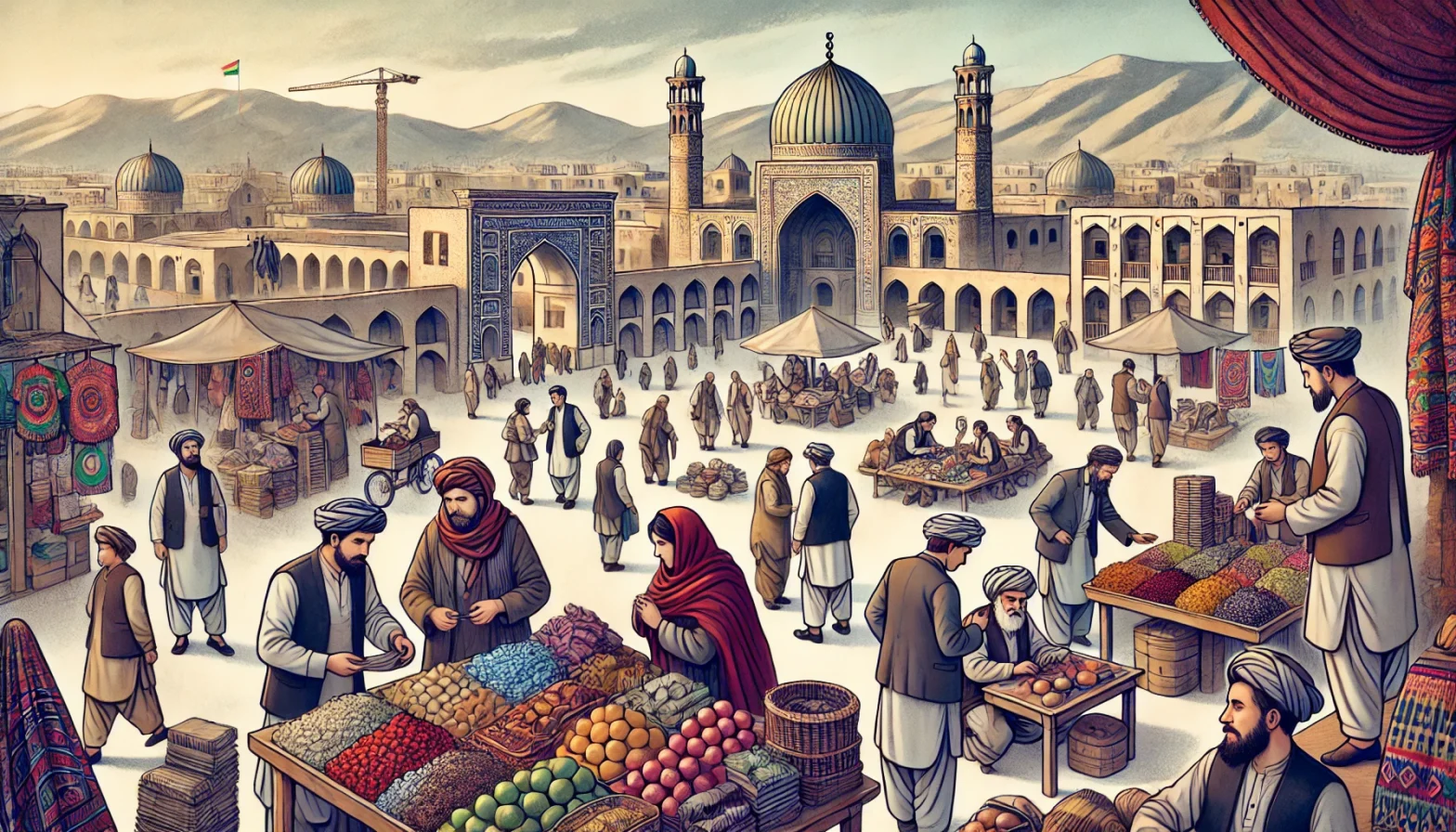آرشیف
عادت چو کهن شود طبیعت گردد
دکـتـر بصـیر کامجو
مولانا دراین بیت پرمفهوم و با ارزش خود، به ژرفترین عادت ها (آئین ، رسم ، سنت ) برانسان اشاره می کند . مولانا به این مسئله باوردارد که : هنگامی عادتی یا آئین ورسم وسنتی ، به مرور زمان در وجود انسان ریشه می دواند وکهن می شود ، وآنقدر درجسم وبدن ما نفوذ میکند که تبدیل به بخشی از خمیره ذاتی ما میگردد. به گونه دیگر، عادتها (آئین ورسم وسنت) درازمدت میتوانند بر رفتارها، افکار واندیشه ونگرشها ، تاآنجا به میزان شخصیت ما تاثیر گذاشته و به گونه ای دومین مزاج ومنش ما عرض وجود می نماید .
تأملی بر مفاهیم عادت ، خوگیری ومنش :
عادت: هررفتاری که به گونه خود کار ومکرر انجام شود و به مرور زمان و با تکرار شکل میگیرند.
ومیتوانند ساده و روزمره باشند، مانند مسواک زدن یا نوشیدن چای صبحگاهی، یا پیچیدهتر و عمیقتر باشند، مانند عادت به دیر خوابیدن یا به تعویق انداختن کارها.عادتها اغلب ناخودآگاه هستند و بدون فکر کردن به آنها ، انجام میشوند. تغییر عادتها ممکن است دشوار باشد، اما با تمرین و اراده متین قابل انجام است.
منش : باکمی تفاوت عادت ، به مجموعه ویژگیهای شخصیتی و اخلاقی فرد اشاره دارد که بر رفتارهای او تأثیر میگذارد. منش شامل ارزشها، باورها، نگرشها و تمایلات فرد میشود. منش عمیقتر از عادت است و ریشه در شخصیت فرد دارد. تغییر منش همواره زمانبرتر و چالشبرانگیزتر از تغییر عادت است.
مولانا با این بیت تلاش دارد به جهان بشریت یادآوری کند که عادتها ومنش ها ، سنت وآداب چه قدر قدرتمند هستند و میتوانند بر زندگی ما تاثیرگذار باشند. او همچنین به این نکته اشاره میکند که تغییر عادتهای قدیمی بسیار دشواراست، زیرا آنها به بخشی از شخصیت ذاتی ما تبدیل شدهاند.
نقش این بیت در زندگی چیست :
آگاهی از قدرت عادتها و منشها وکنه ماهوی این بیت به ما کمک میکند تا به قدرت وتوانایی عادتها ومنشها آگاه بشویم و اهمیت تغییر منفی و نادرست آنها را در زندگی فردی وخانوادگی واجتماعی درک کنیم.
باآموزش اینکه عادتها ومنشها میتوانند تغییر کنند، میتوانیم برای تغییرعادتها رسم، سنت و آیین ناپسند خود تلاش کنیم.
در کل، این بیت کوتاه اما خیلی ژرف از مولانا، یک درس ارزشمند در مورد قدرت عادتها و اهمیت تغییر آنها دریک جامعه پویا است. با درک این مفهوم، میتوانیم زندگی خود را بهبود بخشیده و به سمت رشد و تکامل حرکت کنیم.
سعدی بزرگ بادرک ماهیت این بیت باارزش مولانا : ” عادت چوکهن شود طبیعت گردد”
در داستان شماره 44 گلستان ، در باب « اخلاق درویشان» بینش خویش را در مورد ناهمسانی ها ومشکلات بغرنج مادی ومینوی جامعه ، منش ها وعادت های شخصیتی زمانه ای خویش را چنین می فرماید :
پیرمردی لطیف در بغداد
دخترک را به کفشدوزی داد
مردکِ سنگدل چنان بگزید
لبِ دختر، که خون از او بچکید
بامدادان پدر چنان دیدش
پیش داماد رفت و پرسیدش
کای فرومایه، این چه دندان است؟
چند خایی لبش؟ نه اَنبان است
به مِزاحت نگفتم این گفتار
هَزْل بگذار و جِدّ از او بردار:
” خویِ بد در طبیعتی که نشست
ندهد جز به وقتِ مرگ از دست “
سعدی با آموزش از اندیشه های ناب نیاکان خود ازآنجمله مولانا ، پیام انسانگرایی خودرا در قالب موزون شعر کوتاه به چند نکته مهم فوق اشاره می کند :
ــ خشونت خانگی، بدور از زمان و مکان، یک مشکل اجتماعی بزرگ است که باید به آن توجه شود.
ــ در بسیاری از موارد، زنان قربانی خشونت همسران خود میشوند.
ــ خشونت، نتیجهی یک شخصیت بیمار ونارسا است و به آسانی قابل بازسازی نیست.
ــ جامعه باید نسبت به خشونت خانگی حساس باشد و برای مقابله با آن تلاش کند وممکنه های مادی ومینوی نظام را جهت بازسازی این مشکل وسایر دشواریهای اجتماعی از قبیل سنت ها وآئین ها وعادت های نامتناسب زیست اجتمناعی را خردورزانه تر مدیریت نماید .
نویسنده : دکتر بصیر کامجو
9 نوامـــبر 2024 مـــیلادی
“When Habit Becomes Old, It Becomes Nature“
Author: Dr. Basir Kamjo
November 9, 2024
Rumi
In this profound and valuable verse, Rumi alludes to the deepest of human habits (customs, traditions). He believes that when a habit, custom, or tradition becomes ingrained in a person over time, it becomes a part of their very essence. In other words, long-standing habits can influence behaviors, thoughts, and perspectives to such a degree that they become a second nature.
A Reflection on Habits, Character, and Nature:
Habit: Any behavior that is performed repeatedly and automatically, shaped over time through repetition. Habits can be simple and routine, like brushing one’s teeth or drinking morning tea, or more complex and deep-rooted, such as procrastinating or staying up late. Habits are often unconscious and performed without thought. While changing habits can be challenging, it is achievable with practice and determination.
Character: Similar to habit, but referring to the collection of a person’s personality traits and morals that influence their behavior. Character encompasses values, beliefs, attitudes, and inclinations. Character is deeper than habit and is rooted in a person’s identity. Changing one’s character is typically more time-consuming and challenging than changing a habit.
Rumi
With this verse, Rumi seeks to remind humanity of the immense power of habits and character, and how they can shape our lives. He also points out that changing old habits is very difficult because they have become a part of our identity.
The Significance of This Verse in Life:
Understanding the power of habits and character allows us to appreciate the significance of changing negative and harmful habits in our personal, family, and social lives. By recognizing that habits can change, we can strive to improve ourselves and our communities.
In essence, this short yet profound verse by Rumi offers a valuable lesson about the power of habits and the importance of changing them in a dynamic society. By grasping this concept, we can enhance our lives and progress towards growth and development.
Saadi
The great Saadi, recognizing the depth of Rumi’s verse, “When habit becomes old, it becomes nature,” expressed his own insights in story number 44 of the Gulistan (Rose Garden), in the chapter on “The Ethics of Dervishes.” Addressing the complex issues of material and spiritual life, personal character traits, and the customs of his time, he stated:
A gentle old man in Baghdad gave his daughter in marriage to a shoemaker. The cruel man bit the girl’s lip so hard that it bled. When the father saw this in the morning, he went to his son-in-law and asked, “You wicked man, what are those teeth of yours? Why have you made my daughter’s lip bleed like this? As if it were a bag of money! I did not say these words jokingly, take them seriously: ‘A bad character that has settled in someone’s nature will not leave them except at the time of death.'”
“Saadi, drawing inspiration from the profound thoughts of his ancestors, including Rumi, conveyed his humanistic message in concise, rhythmic poetry, touching upon several crucial points:
Domestic violence is a significant societal issue that transcends time and place and demands attention.
In many instances, women are the victims of their husbands’ violence.
Violence is a consequence of a flawed and unhealthy personality and is not easily remediable.
Society must be sensitive to domestic violence and strive to combat it, utilizing both material and spiritual resources of the system to address this issue and other social challenges such as inappropriate customs, traditions, and habits within the social fabric.”
نوشتن دیدگاه
دیدگاهی بنویسید
برای نوشتن دیدگاه باید وارد بشوید.
مطالب مرتبط
پر بیننده ترین مقالات
مجلات و کتب
پیوند با کانال جام غور در یوتوب
صفجه جام غور در فیس بوک
Problem displaying Facebook posts.
Type: OAuthException
Subcode: 460
گزارشات و مصاحبه ها
-
قاری رحمت الله بنیان گزار گروه داعش و سرکرده گروه طالبان ولایت غورطی یک عملیات نیروهای امنیتی افغان در ولایت فاریاب کشته شد
-
کارگاه سه روزه آموزش حقوق بشر و حقوق بشردوستانه برای نیروهای امنیتی و دفاعی در ولایت غور
-
گرامیداشت شانزدهمین سالروز تأسیس کمیسیون مستقل حقوق بشر افغانستان در ولایت غور
-
امضاء تفاهمنامه نشر برنامه های حقوق بشری با چهار رادیو در ولایت غور


 0
0








